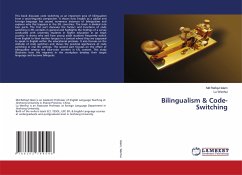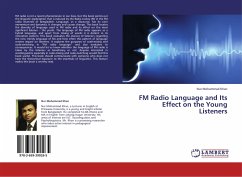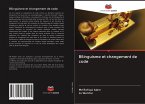This book discusses code switching as an important area of bilingualism from a socio-linguistic perspective. It shows how English as a global and foreign language has caused numerous instances of bilingualism and explains why this happens in the EFL countries. The book is divided into two parts. The first part discusses the factors and functions of code switching in EFL contexts in general and highlights the findings of a survey conducted with university students in higher education in an Asian country. It shows why and how young adult students frequently switch from English to their mother tongue in a context where they are supposed to speak in English within the educational premises. It also focuses on the attitude of code switchers and shows the practical significance of code switching in real life settings. The second part focuses on the effect of bilingualism among the blue-color workers in EFL context. This study illustrates how the migrants in the workplace develop their target language and become bilinguals.
Hinweis: Dieser Artikel kann nur an eine deutsche Lieferadresse ausgeliefert werden.
Hinweis: Dieser Artikel kann nur an eine deutsche Lieferadresse ausgeliefert werden.








